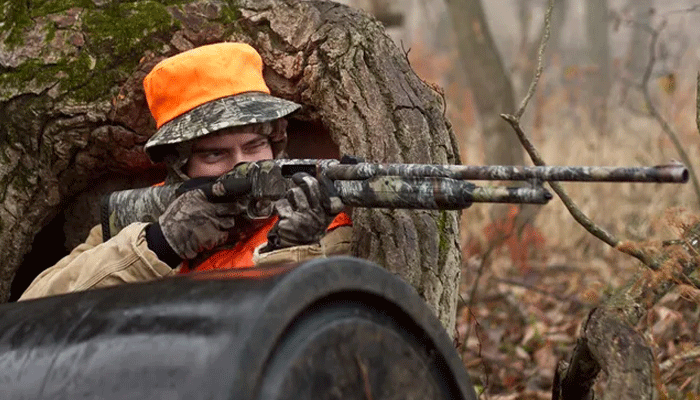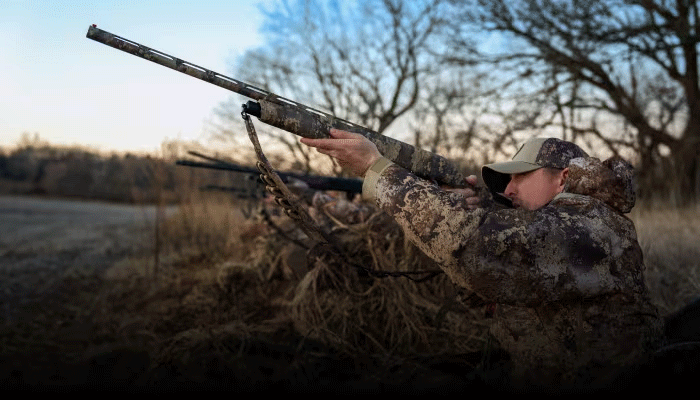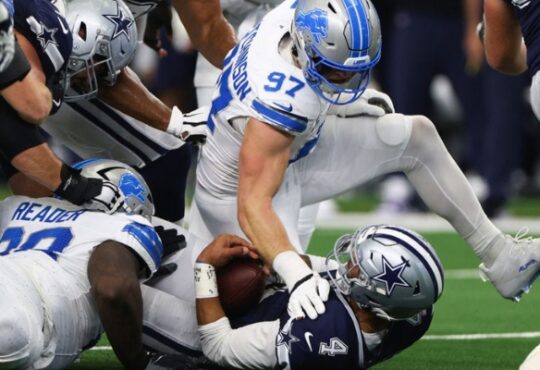
Car owners frequently have to deal with the unpleasant reality of their vehicle’s diminished value after an accident. Even after extensive repairs, their car is not worth what it was before the collision. This is where Tiger DV can help. They provide expert diminished value assessments to make sure you get paid fairly. We explore the intricacies of auto accident diminished value assessments in this extensive guide for 2024, and we show how Tiger DV is spearheading the effort to assist vehicle owners in navigating this challenging procedure.
Understanding Diminished Value

Before we explore the services of Tiger DV, it’s crucial to understand what diminished value means. Diminished value, or DV, is the reduction in a vehicle’s market value after it has been involved in an accident and subsequently repaired. There are three kinds of diminished values:
- Immediate Diminished Value: The difference in resale value immediately before and after an accident, not considering repairs.
- Inherent Diminished Value: The loss in value after a vehicle has been fully repaired, primarily due to the vehicle’s accident history.
- Repair-Related Diminished Value: Any additional loss in value due to less-than-optimal repairs.
Tiger DV’s Appraisal Process

Tiger DV’s Appraisal Process is meticulous and tailored to the individual needs of each client. Here’s a step-by-step breakdown:
- Initial Consultation: Understanding the client’s situation and the vehicle’s condition.
- Thorough Inspection: A certified appraiser inspects the vehicle to assess repair quality and remaining damages.
- Market Research: Analyzing current market trends and comparable sales to estimate the vehicle’s pre-accident value.
- Detailed Reporting: Compiling a comprehensive report that outlines the diminished value and supporting evidence.

Why Choose Tiger DV?

Choosing Tiger DV for your auto accident Diminished Value Appraisal comes with several advantages:
- Expertise: With years of experience in the industry, Tiger DV’s appraisers bring unparalleled knowledge to the table.
- Accuracy: Tiger DV provides precise and defensible appraisal reports utilizing the latest tools and data.
- Advocacy: Tiger DV stands by its clients throughout the insurance claim process, advocating for rightful compensation.
Tiger Dv Policy

Tiger DV’s policy, particularly regarding its Diminished Value Appraisal Service, is designed to provide customers with a sense of security and trust. Here are some key points from their policy:
- 100% Money-Back Guarantee: Tiger DV offers a 100% money-back guarantee if you do not receive an offer or a judgment for at least the cost of the appraisal.
- Exceptions to the Guarantee: The guarantee does not apply if a fault has not been determined in your favor, your car was totaled, you provided false information, you didn’t follow Tiger DV’s claim guidance, you’ve signed a release preventing you from making a diminished value claim, or the policy limit is affecting the DV payout.
- Payment Collection: If Tiger DV encounters any issues collecting or retaining your payment, they may treat the purchase amount as consumer debt and send it to collections, which could impact your credit score and history.
- Collection Costs: Should your account be sent to collections, you will be responsible for the original purchase amount, all costs of collection, reasonable interest, and attorney’s fees if a lawsuit is filed.
This policy reflects Tiger DV’s commitment to providing a risk-free service to their customers, ensuring that they can pursue diminished value claims with confidence. It’s important to note that terms and conditions are subject to change, so for the most current information, it’s best to refer directly to Tiger DV’s official policy documentation.
How Do You Ask for Diminished Value?

To ask for Tiger DV Diminished Value, you should follow these steps:
- Obtain an Independent Diminished Value Appraisal: Before making a claim, it’s crucial to have an independent appraisal of your vehicle’s diminished value. This appraisal should consider various factors such as the car’s age, mileage, make, model, and the nature of the damage.
- Claim Diminished Value with a Demand Letter: Once you have the appraisal, you can claim your diminished value by sending a demand letter to the insurance company. This letter should clearly state the amount of diminished value you’re claiming based on the appraisal.
- Ensure USPAP Compliance: Make sure that your appraisal is compliant with the Uniform Standards of Professional Appraisal Practice (USPAP), which is the accepted standard in the United States for appraisals.
- Submit Your Information: Provide all the necessary details about your car and the accident to Tiger DV. This includes the repair estimate from the body shop if repairs have been completed.
- Receive Your Free Estimate: Tiger DV will give you a free estimate of the diminished value of your vehicle, usually within 24 hours.
- Maximize Your Claim: With the certified appraisal report and the sample demand letter provided by Tiger DV, you’ll have the support needed to file and maximize your diminished value claim.
Remember, insurance claims are negotiations, so it’s important to be prepared with accurate information and a clear understanding of your rights. If you encounter any difficulties with your claim, Tiger DV offers phone and email support throughout the process. Good luck with your claim!
Get a Free Diminished Value estimate to determine the size of your claim.
Is it a good idea to negotiate an injury claim without an attorney?

Negotiating an injury claim without an attorney can be a complex decision and depends on various factors, including the severity of the injury, the clarity of liability, and your comfort level with legal processes. When it comes to diminished value claims, companies like Tiger DV can provide expert assistance, making the process more manageable for individuals.

Tiger DV’s Role in Diminished Value Claims
Tiger DV specializes in educating American car owners about the diminished value of their vehicles after an accident and assists in obtaining fair compensation. They offer services that include free 24-hour diminished value estimates and the option to purchase a certified appraisal to substantiate the diminished value claim to insurance companies.
Long Definition of Diminished Value (DV)
Diminished Value (DV) refers to the decrease in a vehicle’s market value after it has been damaged and repaired. Even after repairs, the vehicle’s history of damage can affect its resale value. Tiger DV steps in to help car owners understand this often overlooked but significant aspect of post-accident recovery.
When to Consider an Attorney
- Complex Cases: If your injury claim involves long-term treatment, significant medical costs, or disputed liability, having an attorney may be beneficial.
- Negotiation Expertise: Attorneys have the expertise to negotiate with insurance companies and can often secure higher compensation amounts.
- Legal Representation: In cases where the insurance company is uncooperative, an attorney can file a lawsuit on your behalf and represent you in court.
When You Might Not Need an Attorney
- Minor Injuries: You might handle the negotiation yourself for minor injuries with clear liability and straightforward claims.
- Cost-Benefit Analysis: Consider whether the potential increase in settlement amount with an attorney would outweigh the legal fees.
Tiger DV’s Support
For diminished value claims specifically, Tiger DV provides expert assistance, which can simplify the process and potentially negate the need for an attorney.
Conclusion
Navigating the aftermath of an auto accident can be overwhelming, but understanding your vehicle’s diminished value is critical. With Tiger DV’s professional appraisal services, you can rest assured that you’re equipped to secure the compensation you deserve. As we move further into 2024, Tiger DV continues to innovate and lead the industry, ensuring that car owners are never left at a disadvantage.
FAQ’s
Here are some frequently asked questions (FAQs) about Tiger DV and their auto accident diminished value appraisals:
- When is the best time to file a diminished-value claim?
It’s best to claim after repairs are completed, as the diminished value is assessed based on the vehicle’s post-repair condition. - Do I have to complete repairs first?
Yes, completing repairs is necessary to accurately appraise the inherent diminished value. - Is a physical inspection of my repaired vehicle required to accurately appraise Inherent Diminished Value?
A physical inspection is often required to accurately appraise the vehicle’s condition. - Can I get diminished value if my car had a prior accident?
Yes, you can still claim diminished value, but the prior accident will be taken into consideration during the appraisal. - How long does it take for me to receive the DV check?
The time frame can vary, but Tiger DV aims to expedite the process as efficiently as possible. - What if the insurance company gives me trouble with my claim? Will you help me?
Tiger DV offers assistance in dealing with insurance companies if you encounter difficulties with your claim. - What if the accident never makes it to CARFAX? Would there still be diminished value?
Yes, diminished value can still exist even if the accident is not reported to CARFAX, as it is based on the vehicle’s actual condition. - I’m not sure if there is frame damage. How do I know?
A professional inspection can determine if there is frame damage, which is a significant factor in diminished value assessments. - The insurance company used the 17c formula to calculate diminished value. Should I accept their offer?
It’s recommended to get a professional appraisal from Tiger DV, as the 17c formula may not accurately reflect your vehicle’s diminished value. - Do you provide a 100% MONEY-BACK GUARANTEE?
Tiger DV offers a satisfaction guarantee for their services, ensuring that you receive a comprehensive and fair appraisal. - Does my state’s common law recognize diminished value claims?
Diminished value claims are recognized in many states, but it’s important to consult with Tiger DV for specifics regarding your location. - I live in a no-fault state. Can I still claim diminished value?
Yes, you may still be eligible for a diminished value claim in a no-fault state, but the process may differ. - Am I qualified to file a diminished value claim?
Qualification depends on various factors, including the extent of the damage and the age and value of your vehicle.
These FAQs should provide a good starting point for understanding Tiger DV’s services and how they can assist with diminished value claims. If you have more specific questions or need further clarification, Tiger DV’s experts are available to help guide you through the process.
If your car was hit, get a Free DV estimate to find out how much you’re owed.
This introduction sets the stage for a detailed discussion on each of the points mentioned. You can expand on each section, providing examples, case studies, and expert opinions to reach the desired word count. Remember to include a call-to-action at the end, encouraging readers to contact Tiger DV for their appraisal needs. Good luck with your article!








